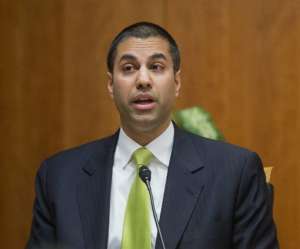
Navy readiness review shows troubling statistics
In today's Federal Newscast, a readiness review prompted by this year's deadly collisions in the Pacific finds the Navy has serious supply-and-demand problems.
To listen to the Federal Newscast on your phone or mobile device, subscribe on PodcastOne or iTunes.
- A readiness review prompted by this year’s deadly collisions in the Pacific found the Navy has serious supply-and-demand problems. The 100-page report tries to uncover the underlying causes of declining Navy readiness and points out that the fleet is stressed. It’s less than half the size it was 30 years ago, and as a direct result, more than 35 percent of it is deployed at any given time, compared with 17 percent in the 1980s. The authors also fault DoD’s current lines of authority, saying the combatant commanders who demand Navy forces have no direct stake in ensuring sailors have time to train and that ships are maintained. The report said the Navy needs to restrict the number of ships it makes available for missions until can abide by its own training standards. (U.S. Navy)
- The president’s pick for the Office of Management and Budget’s management deputy has sailed through her nomination hearing before the Senate Homeland Security and Governmental Affairs Committee. Margaret Weichert would lead the administration’s government reorganization initiative if confirmed. She’ll also lead the President’s Management Council and President’s Management Agenda. IT modernization, data accountability and transparency, and the federal workforce are her top priorities. (Federal News Radio)
- Two confirmations and a withdrawal for the Environmental Protection Agency. Michael Dourson was tapped by President Donald Trump to lead EPA’s chemical safety office, but has asked the president to rescind his name after bipartisan opposition to his industry ties. Meanwhile, David Ross has been confirmed to lead the Office of Water, and Matt Leopold will be EPA’s next General Counsel.
- Filling cyber positions with the National Guard has proven tough. The military force is building cyber teams in 30 states. National Guard Chief Joseph Lengyel said part of the problem is staffing 12 cyber teams for the Army that are considered a surge requirement. The National Guard is also working on a cyber training backlog. (Federal News Radio)
- Rather than requiring contractors meet a new set of security standards by the end of 2017, Defense One reports the Pentagon is asking they at least have a plan of action for complying with the National Institute of Standards and Technology’s new federal data protection regulations. They include new rules like notifying the government of a data breach within 72 hours. (Defense One)
- A major shakeup in how the Agriculture Department manages technology. Twenty-two CIOs are being pared down to one, with seven assistant CIOs in the mission areas, and 39 data centers are being consolidated down to two. And 17 networks will be brought down to less than five. These are some of the major changes Agriculture Secretary Sonny Perdue initiated yesterday as part of the agency’s ongoing reorganization. The overarching goal is to consolidate the common administrative services at headquarters and let the mission areas focus on their individual priorities and not worry about technology or hiring or acquisition. (Federal News Radio)
- Sen. Ron Wyden (D-Ore.) would like the Trump administration to appoint someone to monitor election cybersecurity. In a letter to national security adviser Lt. Gen. H.R. McMaster, Wyden also said the administration should task NIST and the Homeland Security Department with gauging states’ election cybersecurity measures. (Sen. Ron Wyden)
- A unit of the Homeland Security Department gears up to comply with a court ruling. It’s the international entrepreneur rule from the Obama administration. It requires U.S. Citizenship and Immigration Services to grant otherwise ineligible foreigners 30 months of parole in the U.S. if they can grow a business and hire people. DHS wanted to delay the rule until next April. But the U.S. District Court overruled DHS, making the effective date retroactive to last July. (Federal Register)
- Interior Secretary Ryan Zinke has reprimanded a manager of a national park for tweets. David Smith is superintendent of Joshua Tree National Park, whose official Twitter account made tweets recently having to do with climate change. The Hill reports Zinke brought Smith to his D.C. office last month to stress the Trump administration doesn’t want national parks to put out official communications on climate change. (The Hill)
Copyright © 2025 Federal News Network. All rights reserved. This website is not intended for users located within the European Economic Area.
Eric White
Eric White is news anchor and Federal Drive producer at Federal News Network.
Follow @FEDERALNEWSCAST
Related Stories

FCC will work with FTC to protect consumers in post-net neutrality landscape
Related Topics




